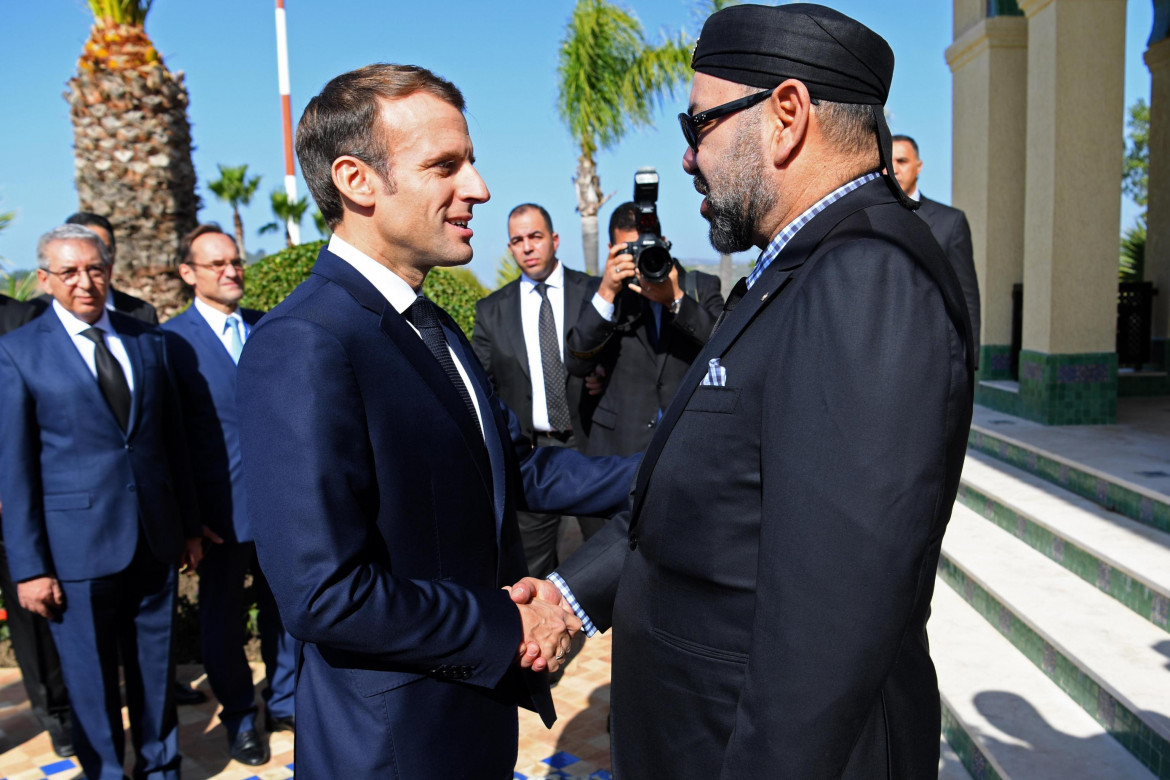Analysis
Macron recognizes Moroccan authority in Western Sahara
Since 1991, the U.N. peacekeeping mission MINURSO has aimed to “guarantee the self-determination of the Sahrawi people through the organization of a referendum.” France is throwing its weight against them.

In a letter addressed to Morocco's King Mohammed VI, French President Emmanuel Macron wrote that for France, “the present and future of Western Sahara lie within the framework of Moroccan sovereignty,” effectively aligning with the positions of other Western countries such as Spain, the United States and Israel.
“The only basis to achieve a just, lasting, and negotiated political solution” for Western Sahara, Macron wrote, is “the autonomy plan proposed by Morocco in 2007.”
According to a Moroccan Royal Cabinet press release issued on the occasion of “Throne Day” – the commemoration of the beginning of Mohamed VI's monarchy in 1999 – Rabat highlighted “yet another diplomatic victory regarding its legitimate claim over Western Sahara.”
Western Sahara, a former Spanish colony, is considered by the United Nations to be a “non-self-governing territory.” Since 1991, the U.N. peacekeeping mission MINURSO has aimed to “guarantee the self-determination of the Sahrawi people through the organization of a referendum.”
Since 1975, Rabat has controlled nearly 80 percent of Western Sahara and exploited its resources, advocating “a plan for autonomy within the framework of the territorial integrity of the Kingdom of Morocco,” while the Polisario Front – the legitimate representative of the Sahrawi people – has been demanding that a referendum be organized under the auspices of the UN. After Rabat's violation of the ceasefire in November 2020, the Front resumed the armed struggle for the liberation of the occupied territories.
The MINURSO mission has never been able to act as a mediator between Rabat and the Polisario Front. This situation favors the Moroccan government, which has maintained the status quo in Western Sahara and lavished millions on its various European partners – primarily France and Spain – in order to continue its exploitation of the region's rich resources: in particular, phosphates, renewable energy and fishing.
Paris is one of Rabat's main allies, both at the diplomatic level, with its vetoes of U.N. Security Council resolutions against Rabat for its failure to respect human rights towards Sahrawi activists, and at the economic level, with several companies that have invested in Western Sahara and with agreements to export the area’s agricultural and fish products to Europe at subsidized rates – found to be lawful by the European Court of Justice.
Macron’s letter caused an angry reaction on the part of Algeria, which announced that it was recalling its ambassador to France and intended to take further measures against Paris. And there was plenty of “disappointment” on the part of the Polisario Front about Paris’s position, according to its secretary general, Brahim Ghali: “Declaring that they support Morocco's autonomy plan actually means going against UN resolutions, international law, and supporting the violent and illegal occupation of Western Sahara,” Ghali told the Sahrawi news agency SPS.
In an attempt to “clean up” Morocco’s image on the international stage with regard to the respect for human rights – after complaints by several NGOs (Human Rights Watch, Amnesty) regarding cases of repression and torture against Sahrawis, activists, and journalists – the Moroccan Justice Ministry announced the pardon and release of 2,476 people during the Throne Day celebrations. Also freed were the three journalists Omar Radi, Soulaimane Raissouni, and Taoufik Bouachrine, as well as a well-known intellectual figure, French-Moroccan historian and human rights defender Maâti Monjib, who had been convicted by the Rabat justice system of “sexual violence” – a crime that the Moroccan secret services often charge dissidents with. According to many NGOs, such accusations were motivated only by them “standing out for their political activism and their criticism of Moroccan government corruption.”
A clear example is the case of Omar Radi, a journalist known for his reporting on inequality, corruption and and human rights violations in Morocco, who was arrested on July 29, 2020 on charges of “espionage and endangering state security” (because he had done some research on corruption in Morocco, hired by an international NGOs) and alleged “rape and sexual violence.” He was sentenced by the Moroccan justice system to five years in prison.
Ali Lmrabet, a Moroccan journalist and correspondent for El Mundo and in exile for several years, wrote on X that the amnesty was “a gesture that restores some justice in Morocco, a country increasingly victimized by harsh government repression against activists and journalists.” However, “true justice will only be there when human rights will be respected with regard to the Sahrawis in the occupied territories as well, and those forgotten in Moroccan prisons, and the RIF activists (Nasser Zefzafi et Nabil Ahamjikdi) whose fate remains unknown.”
Originally published at https://ilmanifesto.it/macron-riconosce-lautorita-marocchina-sul-sahara-occidentale on 2024-07-31
